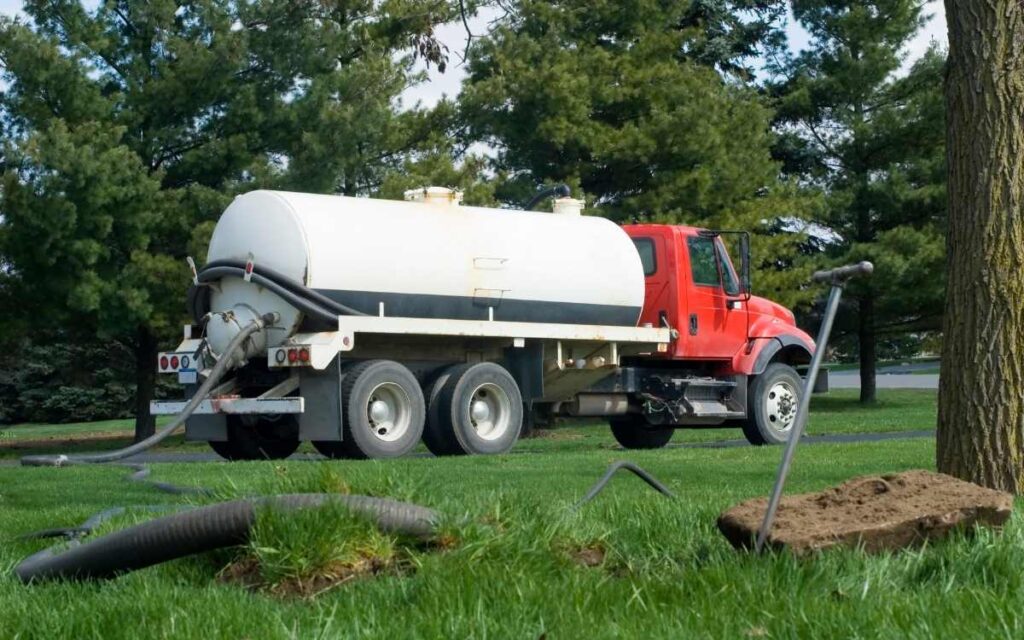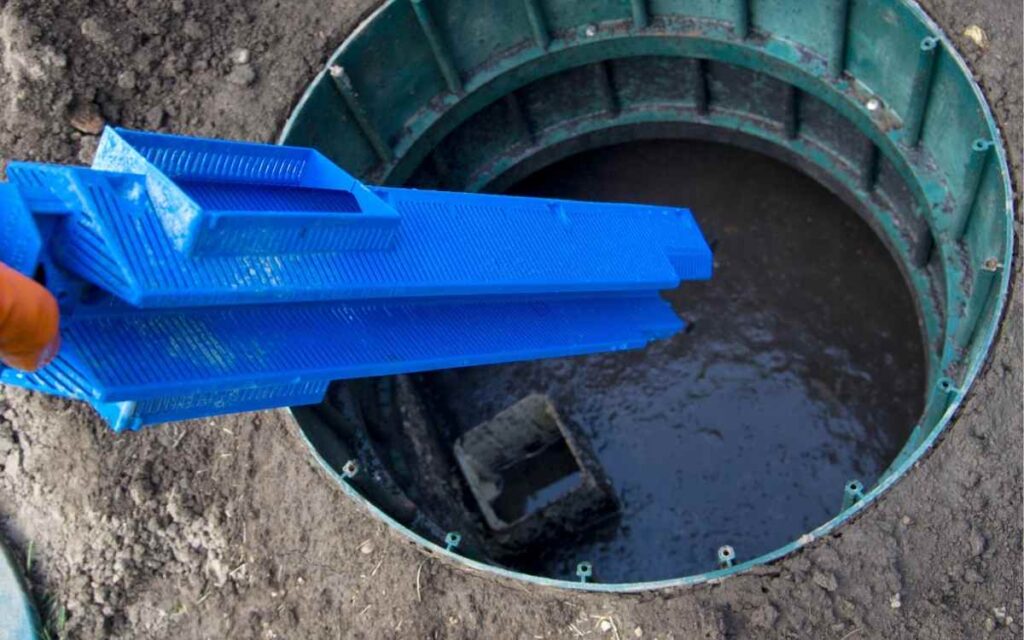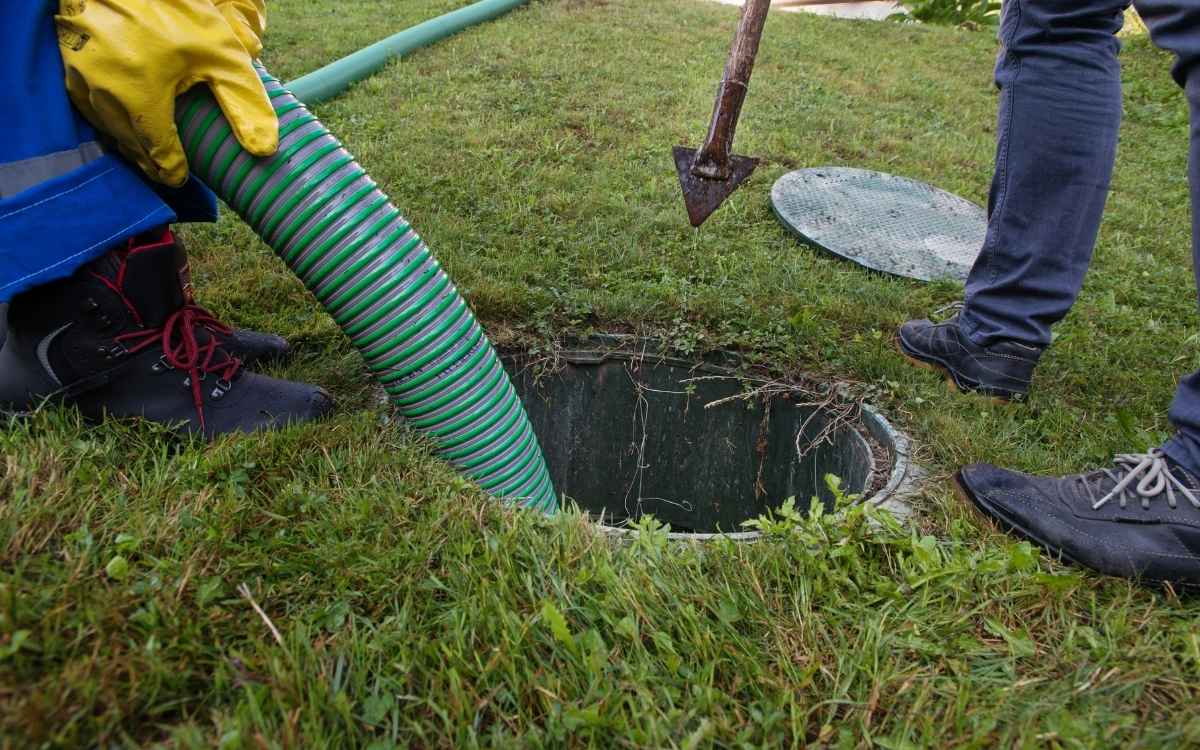Septic tanks are a necessary part of many homes, but they can be expensive to maintain if they are not properly taken care of.
In this article, we will discuss some tips on how to maintain your septic tank and avoid costly repairs.
What is a septic tank and what does it do?
A septic tank is a container that is used to treat wastewater before it is discharged into the environment.
Wastewater includes sewage and other water-borne wastes. The septic tank is usually buried underground and has an inlet and outlet pipe.
The inlet pipe allows wastewater to flow into the tank, while the outlet pipe allows treated wastewater to flow out of the tank. Septic tanks can be made of concrete, fiberglass, or plastic.
They are typically cylindrical in shape and range in size from 500 to 5,000 gallons. Septic tanks are usually used in areas where there is no municipal sewer system.
Inside the septic tank, there are three layers: the scum layer, the sludge layer, and the effluent layer. The scum layer consists of floating materials such as grease and oil.
The sludge layer consists of settleable solids such as sand and grit.
The effluent layer is the middle layer and consists of treated wastewater.
As wastewater enters the septic tank, solids settle to the bottom of the tank while greases and oils float to the top.
Bacteria break down the waste in the septic tank, which helps to reduce odors and pathogens. Treated wastewater then flows out of the septic tank and into a leach field.
Symptoms that your septic tank needs to be pumped

If your septic tank is not properly maintained, it can cause serious problems. Some symptoms that indicate your septic tank needs to be pumped include:
- Slow drains
- Frequent backups
- Gurgling sounds in the drains
- Sewage odors
- Pooling water around the leach field
If you notice any of these symptoms, you should contact a septic tank professional as soon as possible.
How often should you pump your septic tank?
Most septic tanks need to be pumped every three to five years, depending on the size of the tank and the number of people using the system.
However, some tanks may need to be pumped more frequently if they are located in areas with high water tables or if they experience a lot of heavy use.
If you’re not sure how often to pump your septic tank, it’s best to consult with a professional.
They will be able to assess your specific situation and provide advice on the best course of action. Not pumping your septic tank often enough can lead to a backup, which can be a messy and costly problem. So, be sure to stay on top of your septic tank maintenance and schedule a pumping when needed.
How to maintain your septic tank
Most people don’t give their septic tank a second thought – until it backs up into their home.
By then, it’s usually too late to prevent an expensive and messy cleanup job. Fortunately, there are some simple things you can do to keep your septic tank in good working order.
8 tips for septic tank maintenance

1. Pump your septic tank every three to five years: This is the most important thing you can do to maintain your septic tank. Pumping removes the built-up sludge and scum from the tank, which prevents it from overflowing into your home.
2. Don’t flush anything other than human waste and toilet paper: This might seem like common sense, but you’d be surprised how many people flush things like cigarettes, condoms, and feminine hygiene products down the toilet. These items can clog up your septic tank and lead to problems.
3. Use water sparingly: One of the main reasons septic tanks fail is because of too much water entering the system. Be mindful of how much water you’re using on a daily basis, and try to cut back where you can.
4. Don’t drive or park on your septic tank: This can damage the tank and its components. If you must drive over it, make sure to use a board or other piece of wood to distribute the weight evenly.
5. Keep an eye out for warning signs: If you notice your drains backing up, water pooling in your yard, or sewage odors, these could be warning signs that your septic tank is failing. Address the problem as soon as possible to avoid further damage.
6. Use biodegradable cleaners and detergents: These are gentler on your septic system and won’t damage the bacteria that help to break down waste.
7. Have your septic tank inspected regularly: This is a good way to catch any problems early on, before they turn into major issues.
8. Use Septifix: Septifix is a septic tank tablet that helps to break down sewage and wastewater, making it easier for your septic system to process and discharge. The tablets contain 14 strains of aerobic bacteria – over 10 billion bacteria strains per gram, oxygenation, and pH regulating compounds.
The idea is that you drop a tablet into your septic tank every 90 days, and the bacteria will help to break down the solid waste in the tank, preventing it from overflowing.
The oxygen released by the tablet will also help to keep the tank from getting smelly.
By following these tips, you can help to ensure that your septic system stays in good working order for many years to come.
Related article
Does Septifix Work? How They Are Different From Other Competitors?
FAQs about septic tanks
1. How often should I have my septic tank pumped?
It’s generally recommended that you have your septic tank pumped every three to five years. However, this may vary depending on the size of your tank and the number of people in your household.
2. What are some warning signs that my septic tank needs to be pumped?
If your toilet starts backing up, if sewage begins to back up into your home, or if you notice any foul odors coming from your septic tank, it’s time to call a professional.
3. What should I do if I think my septic tank is failing?
If you think your septic tank is failing, you should contact a professional as soon as possible. Septic tank failure can lead to serious health and environmental problems, so it’s important to get the problem fixed as soon as possible.
4. Can I pump my own septic tank?
You could, but it’s not recommended. Picking the wrong size pump or using the wrong type of pump can damage your septic tank. It’s always best to leave septic tank pumping to the professionals.
5. How much does it cost to have a septic tank pumped?
The cost of septic tank pumping varies depending on the company you use, the size of your septic tank, and the location of your tank. However, you can expect to pay anywhere from $200 to $400 for septic tank pumping.
